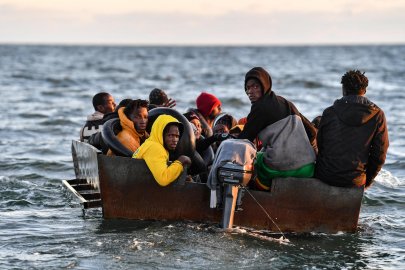Tragic Boat Capsize in Tunisia: Eight Migrants Dead, Many Rescued
Understanding the Crisis
In recent years, the Mediterranean Sea has become a perilous route for countless migrants seeking refuge and a better life in Europe. This tragic incident off the coast of Tunisia, where eight migrants lost their lives after their boat capsized, highlights the urgent need for effective solutions to address the ongoing humanitarian crisis. As nations grapple with migration policies, the plight of these individuals remains a pressing issue.
The Incident
The boat, which was reportedly overloaded, capsized while attempting to navigate the treacherous waters of the Mediterranean. The Tunisian coastguard launched a rescue operation, successfully saving many survivors from the sea. However, the loss of life marks a grim reminder of the dangers faced by those who embark on such perilous journeys.
Key facts about the incident:
The Wider Context of Migration in the Mediterranean
This incident is not an isolated event but part of a broader crisis affecting the Mediterranean region. Thousands of individuals from Africa, the Middle East, and beyond seek to escape conflict, poverty, and persecution, often risking their lives in the hope of reaching safety.
The Mediterranean migration route has witnessed an alarming increase in fatalities. According to various reports, many migrants embark on these journeys in unseaworthy vessels, often facilitated by human trafficking networks. The lack of safe and legal pathways to migration exacerbates the risks associated with these treacherous crossings.
Factors Driving Migration
The motivations behind migration are complex and multifaceted. Here are some of the primary factors driving individuals to undertake such dangerous journeys:
Understanding these factors is crucial for policymakers to develop comprehensive and humane immigration strategies that address the root causes of migration.
Rescue Operations and International Response
The Tunisian coastguard’s swift action in rescuing survivors is commendable, yet it raises important questions about the adequacy of rescue operations in the Mediterranean. Many non-governmental organizations (NGOs) and humanitarian groups emphasize the need for increased support for rescue missions, as well as the establishment of safe and legal migration channels.
Furthermore, international cooperation is essential in tackling the migration crisis. Countries must work together to ensure the protection of migrants’ rights and to provide humanitarian assistance to those in need. This includes:
The Human Cost of Migration
Behind the statistics are real lives and stories. The migrants who set out on these dangerous journeys are often filled with hope and dreams for a better future. Their tragic deaths highlight the urgent need for a more compassionate approach to migration.
The human cost of these journeys is immeasurable. Families are torn apart, and communities are left mourning the loss of their loved ones. Each life lost is a stark reminder that without effective intervention, this crisis will continue to escalate.
Moving Forward: Solutions and Hope
As we reflect on this tragic incident, it is imperative to consider what can be done to prevent further loss of life at sea. Here are some potential solutions:
Hope lies in our collective ability to respond to this crisis with empathy and action. By prioritizing the safety and dignity of migrants, we can work towards a future where such tragedies are no longer a reality.
Conclusion
The tragic capsizing of a migrant boat off the coast of Tunisia serves as a wake-up call for the international community. As we mourn the loss of lives, we must also commit to finding effective solutions that protect the rights and dignity of all migrants. The journey towards a safer and more humane migration system is long, but it is a journey we must undertake together.










